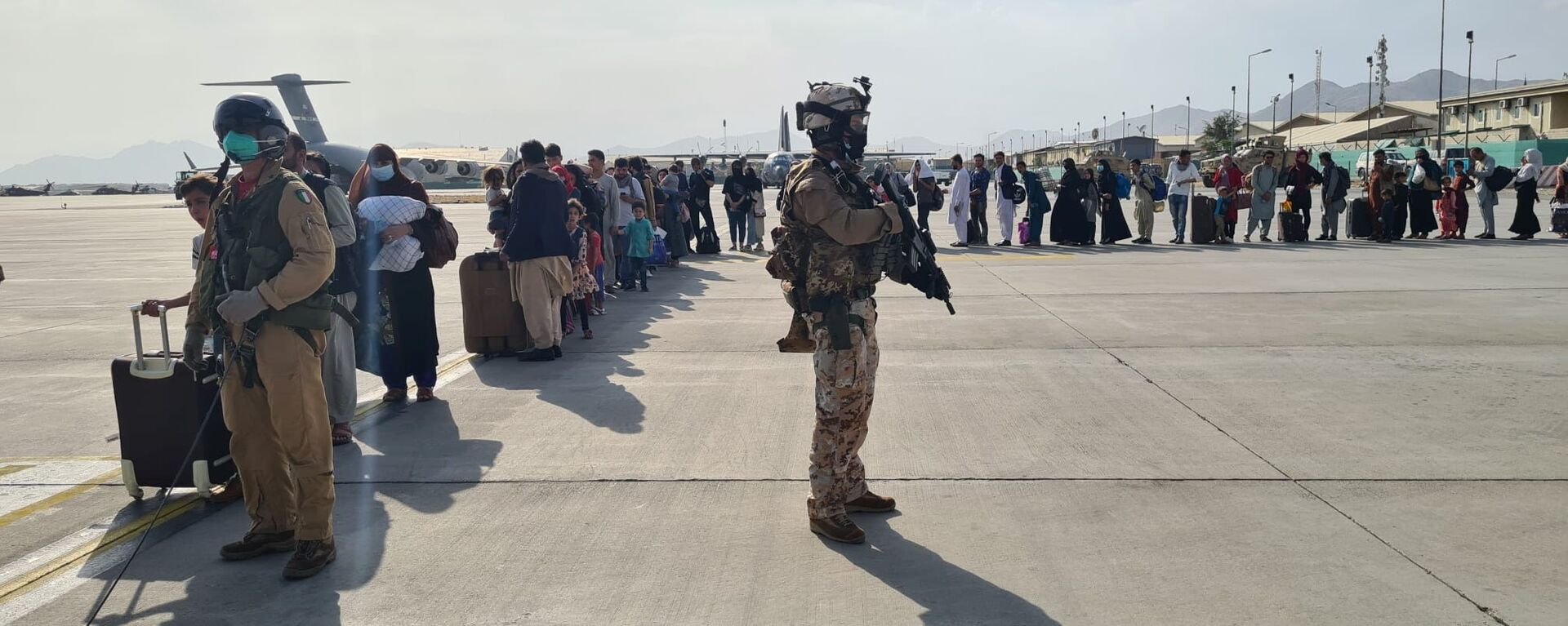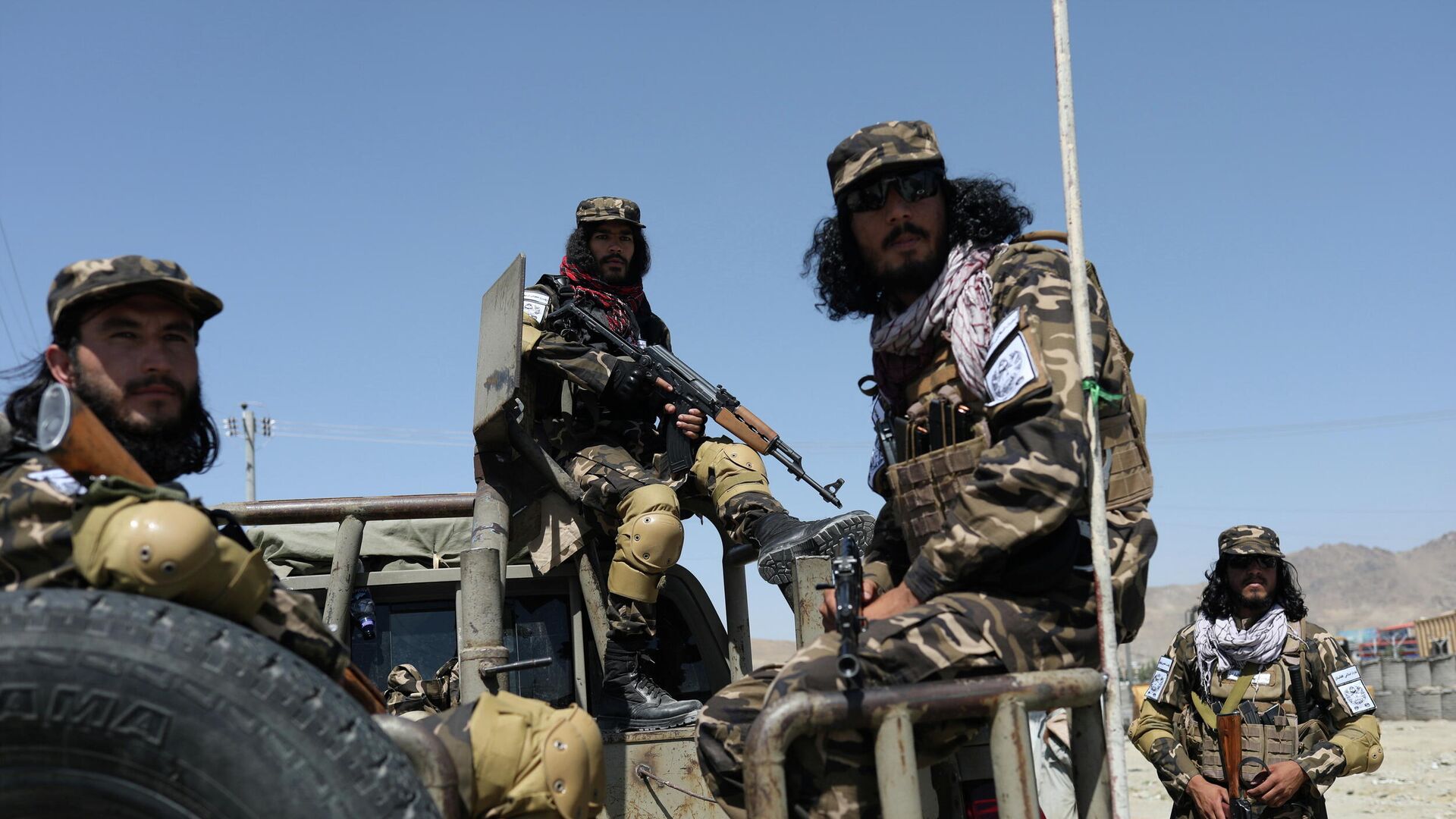https://sputnikglobe.com/20211028/wsj-four-us-intel-agencies-offered-reports-on-afghanistan-all-failing-to-predict-fall-of-kabul-1090288002.html
WSJ: Four US Intel Agencies Offered Reports on Afghanistan, All Failing to Predict Fall of Kabul
WSJ: Four US Intel Agencies Offered Reports on Afghanistan, All Failing to Predict Fall of Kabul
Sputnik International
It took the Taliban just several weeks to establish control over Afghanistan after US President Joe Biden announced the withdrawal of US troops from the... 28.10.2021, Sputnik International
2021-10-28T19:14+0000
2021-10-28T19:14+0000
2021-10-28T19:14+0000
kabul
us
afghanistan
intelligence
https://cdn1.img.sputnikglobe.com/img/07e5/09/0a/1088951334_0:0:2500:1407_1920x0_80_0_0_40b9e4b645d77a24b54226d3239811df.jpg
Four different US intelligence agencies offered nearly two dozen assessments of the situation in Afghanistan before the country surrendered to the Taliban*, but none of them managed to predict the rapid fall of Kabul, The Wall Street Journal reported Thursday, citing classified materials it obtained.The agencies reportedly rolled out their "scattershot assessments of the staying power of the Afghan military and government" instead, estimating that the government would not likely survive after the US withdrawal and analysing advances of the Taliban in the country from spring 2020 to July 2021.After Joe Biden announced his decision to withdraw the US troops from Afghanistan, several intelligence reports followed. One of them was a report by the Central Intelligence Agency (CIA), titled "Government at Risk of Collapse Following U.S. Withdrawal" and focused on how the Ghani administration would fall by the end of the year should the American troops leave the country. Then the CIA produced a document titled "Afghanistan: Assessing Prospects for a Complete Taliban Takeover Within Two Years". Another intelligence report from the Defense Intelligence Agency, crafted in June, suggested that the militants would stick to their strategy of isolating rural areas from Kabul for another year.The summaries cited by The WSJ also offered insights into some of the recommendations received by both former President Donald Trump and his successor Joe Biden as they tried to figure out how to withdraw the US troops from Afghanistan safely.The Biden administration has been widely criticised for the chaotic evacuation from Afghanistan - which not only led to chaos at the Kabul airport for several days but also claimed the lives of 13 US soldiers and over a dozen of Afghan civilians. However, officials from virtually every US agency and department seemingly can point the finger at someone else for the fiasco.Joint Chiefs of Staff Chair Gen. Mark Milley said there was "nothing that I or anyone else saw that indicated a collapse of this army and this government in 11 days", suggesting that the intelligence community failed to get the timeline right.CENTCOM Chief General Frank McKenzie asserted back in September that it was Trump's decision to sign a peace agreement with the Taliban that turned out to be a key factor that prompted the swift fall of the Ghani administration.Intelligence officials have also defended their work, with CIA Director William Burns arguing that his agency performed well enough even though it could not say "with mathematical precision" that "former President Ghani in Afghanistan is going to flee his office and not tell his senior-most aides on the 15th of August".
https://sputnikglobe.com/20210823/us-embassy-staff-in-kabul-feeling-betrayed-by-washington-amid-evacuation-efforts-cables-reveal-1083691868.html
kabul
afghanistan
Sputnik International
feedback@sputniknews.com
+74956456601
MIA „Rossiya Segodnya“
2021
News
en_EN
Sputnik International
feedback@sputniknews.com
+74956456601
MIA „Rossiya Segodnya“
Sputnik International
feedback@sputniknews.com
+74956456601
MIA „Rossiya Segodnya“
kabul, us, afghanistan, intelligence
kabul, us, afghanistan, intelligence
WSJ: Four US Intel Agencies Offered Reports on Afghanistan, All Failing to Predict Fall of Kabul
It took the Taliban just several weeks to establish control over Afghanistan after US President Joe Biden announced the withdrawal of US troops from the country. That was followed by a chaotic evacuation of Americans and their allies, along with the deaths of 13 US soldiers and several Afghan civilians in a terrorist attack near the Kabul airport.
Four different US intelligence agencies offered nearly two dozen assessments of the situation in Afghanistan before the country surrendered to the Taliban*, but none of them managed to predict the rapid fall of Kabul,
The Wall Street Journal reported Thursday, citing classified materials it obtained.
The agencies reportedly rolled out their "scattershot assessments of the staying power of the Afghan military and government" instead, estimating that the government would not likely survive after the US withdrawal and analysing advances of the Taliban in the country from spring 2020 to July 2021.
After Joe Biden announced his decision to withdraw the US troops from Afghanistan, several intelligence reports followed. One of them was a report by the Central Intelligence Agency (CIA), titled "Government at Risk of Collapse Following U.S. Withdrawal" and focused on how the Ghani administration would fall by the end of the year should the American troops leave the country. Then the CIA produced a document titled "Afghanistan: Assessing Prospects for a Complete Taliban Takeover Within Two Years".
Another intelligence report from the Defense Intelligence Agency, crafted in June, suggested that the militants would stick to their strategy of isolating rural areas from Kabul for another year.
The summaries cited by The WSJ also offered insights into some of the recommendations received by both former President Donald Trump and his successor Joe Biden as they tried to figure out how to withdraw the US troops from Afghanistan safely.

23 August 2021, 12:11 GMT
The Biden administration has been widely criticised for the chaotic evacuation from Afghanistan - which not only led to chaos at the Kabul airport for several days
but also claimed the lives of 13 US soldiers and over a dozen of Afghan civilians. However, officials from virtually every US agency and department seemingly can point the finger at someone else for the fiasco.
Joint Chiefs of Staff Chair Gen. Mark Milley said there was "nothing that I or anyone else saw that indicated a collapse of this army and this government in 11 days", suggesting that the intelligence community failed to get the timeline right.
CENTCOM Chief General Frank McKenzie
asserted back in September that it was Trump's decision to sign a peace agreement with the Taliban that turned out to be a key factor that prompted the swift fall of the Ghani administration.
Intelligence officials have also defended their work, with CIA Director William Burns arguing that his agency performed well enough even though it could not say "with mathematical precision" that "former President Ghani in Afghanistan is going to flee his office and not tell his senior-most aides on the 15th of August".


